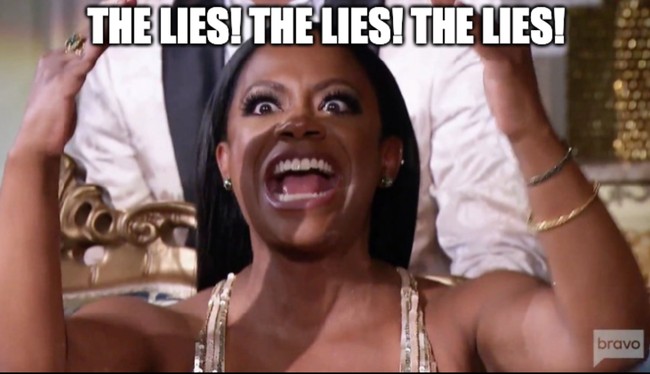ARTICLE AD BOX
BRUSSELS — Keir Starmer promised voters a big Brexit reset. This week, Britain’s prime minister will have to decide just how big.
British negotiators are sitting down for a week of intensive talks with their EU counterparts as they prepare for the looming May 19 Brexit summit in London.
Their goal is to break what one EU official described as a “deadlock” on key issues ahead of Starmer’s big foreign policy set piece.
“Member states and the Commission share the view that the mood is constructive, on both sides,” according to an EU diplomat with their ear to the ground.
But there has as yet been no major breakthrough on the individual topics with just two weeks to go to the summit itself, according to EU officials and diplomats familiar with the state of negotiations. They were granted anonymity to speak freely as talks continue.
Starmer’s aim for the May 19 meeting is to sign a defense pact with Brussels to fill a Donald Trump-shaped hole in Britain’s security alliances — and net U.K. firms access to a €150 billion EU rearmament slush fund.
He also wants to tee up negotiations on other issues for the rest of the year: addressing British priorities like easing the flow of cross-border food trade and simplifying electricity imports and exports.
Brussels is in turn pushing for EU priorities like easy cross-channel visas for young people and long-term access for EU fishing fleets in British waters.
Committing to ink
Both sides think a landing zone is in sight after a series of compromises. But there’s still time for things to go wrong.
Ambassadors from EU member countries expected to be updated on the details of an emerging deal last week but were told they would have to wait until after the weekend to hear more than an outline.
“Member states were asking for details themselves, but are still waiting for the text,” a second person, an EU official, said.
The compressed timeline has apparently been partly driven by a purported U.K. request not to commit hard policy details of the reset to ink until last Thursday’s English local elections were out of the way.
 British negotiators are sitting down for a week of intensive talks with their EU counterparts as they prepare for the looming May 19 Brexit summit in London. | Andy Rain/EPA
British negotiators are sitting down for a week of intensive talks with their EU counterparts as they prepare for the looming May 19 Brexit summit in London. | Andy Rain/EPAStarmer’s Labour party received a widely expected drubbing on Thursday at the hands of Nigel Farage’s Euroskeptic Reform UK outfit. In the eyes of No. 10 Downing Street, a focus on talks with Brussels might have made the contest even more difficult.
But keeping one eye on Farage has shaped the talks in other ways, too. Labour, like its Conservative opponents, is focused on the U.K.’s migration statistics and wants to keep them as low as possible in the hope it will be rewarded by voters.
As such, Starmer has spent the last year giving the cold shoulder to Brussels over its request for a youth mobility scheme — which would make it easier for young people to experience life on both sides of the channel, but also impact the figures.
It didn’t go down well. Finally, weeks ahead of the big reset summit, Starmer has started to publicly relent: ditching a canned response that he had “no plans” for the scheme. EU officials, meanwhile, said that U.K. negotiators were starting to show openness to the idea.
But London has presented a compromise option: to keep immigration statistics down, the number of youngsters who can take part in the scheme will be capped, and their stays will be shortened to just one year to keep them from sticking around in the figures. British negotiators are also resisting EU pressure to restore European students’ access to lower home tuition fees at universities, a key ask of some capitals.
“It seems like there’s a bit of a deadlock, especially when it comes to tuition fees and quotas,” the EU official quoted above said, adding that “discussions with the U.K. are planned all of next week.”
At their check-in last week member country capitals urged the European Commission’s negotiators to stick to their guns. “Most of them really pushed on youth mobility,” the official said. Brussels has apparently attempted to compromise by dropping its earlier plans for four-year stays — it is now arguing for two years, or one initial year extendable to two. London is not yet buying it.
Go fish
Then there is the question of fishing. When Boris Johnson signed the maritime chapter of the Trade and Cooperation Agreement in 2021, EU fishers breathed a sigh of relief. In exchange for a Brexit trade agreement, the then-British prime minister had given away generous access to U.K. waters until June 2026.
With that access now due to expire and Britain back at the negotiating table, member countries like France want assurances it will continue for the foreseeable future. They’ve privately hinted they are prepared to send Starmer home empty-handed if they don’t get it.
The problem for the British prime minister is that the sort of deal sought by Paris and other capitals could see him painted a sellout back at home — easy material for Farage and his colleagues.
 Keeping one eye on Nigel Farage has shaped the talks in other ways, too. | Adam Vaughan/EPA
Keeping one eye on Nigel Farage has shaped the talks in other ways, too. | Adam Vaughan/EPA“The French will say what they will say, but we are absolutely determined to stand up for the interests of the U.K. fishing industry,” the U.K.’s Fishing Minister Daniel Zeichner last month told a parliamentary committee, channeling his country’s maritime patriotism. “The fishing industry has been let down before, and I don’t intend to let that happen again.”
It’s fighting talk, and not everyone thinks it’s compatible with a successful summit on May 19.
“I’m not sure the defense and security agreement is a given at the summit,” another EU diplomat said. “There are some vocal member states when it comes to fisheries.”
Ultimately, what negotiators from both sides decide this week will determine the course of the meeting — and the course of cross-channel relations for years to come.
.png)
 2 hours ago
1
2 hours ago
1








 English (US)
English (US)